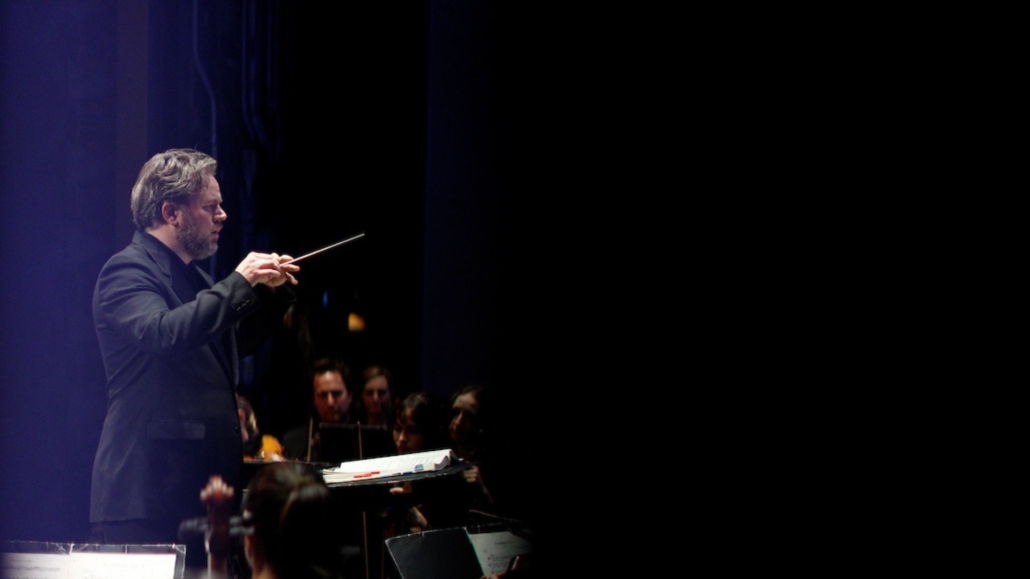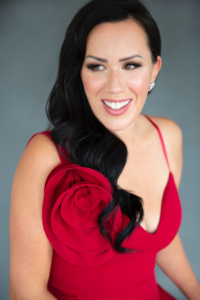Turning Henrik Ibsen’s 1867 verse drama Peer Gynt into a theatrical concert is no easy task. To begin with, the original Oslo production featured more than 50 characters; the version that the Victoria Symphony, the Belfry Theatre, conductor Christian Kluxen, and director Antony Ernst will present has been cut down to its five central protagonists. Then there’s the fact that the original was performed in rhyming Norwegian, in a style that hearkened back to the verse dramas of Johann Wolfgang von Goethe and William Shakespeare. (Ibsen quickly abandoned this format in favour of more naturalistic speech, as familiar to us through works such as Hedda Gabler and The Wild Duck.)
From the musical perspective, another problem is quickly apparent. Edvard Grieg, who wrote incidental music for the original, didn’t score all of the action, although what he did write—his murderous troll ballet “In the Hall of the Mountain King”, in particular—is perennially included in classical-music “greatest hits” surveys.
So, what to do? Cut, cut, cut… and shore up the key scenes with what music exists. Fortunately, Peer Gynt is eminently cuttable—the title character’s Act Four peregrinations are entertaining, but largely irrelevant to the work’s moral core—and its message is eternally relevant. In fact, its blustering anti-hero—a mendacious serial fantasist who’s perpetually on the run from the hollowness at his core—may well be familiar to all who follow politics.
“One of the things I think is fascinating about Peer Gynt, as a play, is that there’s an attempt to understand, psychologically, what is going on inside a national psyche, but not in a jingoistic way,” says Ernst. “It’s actually a very critical look at some of the issues confronting—or perhaps hindering, you could say—Norwegian integration into the European community as it was then. The nationalism that you have is a national pride for beign unique, but it certainly was not introspective. It’s not a kind of nationalism that seeks self-improvement; it’s a nationalism that says ‘We’re good, ’cause we’re us,’ without questioning whether there’s anything that could be better than it is.
“I’m Australian, and that’s something that Australia is also very prone to,” he adds, laughing. “They say Australians are a very balanced people; they have a chip on both shoulders.”
Kluxen, a Danish national, sees Ibsen’s story as an essentially modern discussion of “identity”. “From my perspective, the story of Peer Gynt and its moral is something that is deeply routed in Scandinavian cultural understanding,” he says. “But it also reaches far beyond this and is highly relevant in other cultures. Furthermore, the concept of performing a play with incidental music is something that I find highly interesting and important, as this is a genre that has almost completely disappeared.”
To foreground these issues, Ernst has limited the characters to Gynt, the three most significant women in his life—his mother, Åse; his true love, Solveig, whom he abandons, and the Troll King’s alluring daughter, the Woman in Green—and the mysterious Bøyg, part monster, part judge, part omniscient deus ex machina, and quite possibly Gynt’s conscience.
“There are some things that are not so easy to discard,” Ernst observes. “But it’s theme and variations; as long as the theme is there, you can do without all the variations.The thing is that you have to focus on the story you’re actually trying to tell, and the story you’re trying to tell is the journey of this person and the people around him. What does he do wrong, and how does he ultimately redeem himself? In order to see how somebody can be redeemed, you have to see how they screw up—and so what you need to do is select the particular screw-ups that show what his profound problem is.
“The other element of this is a purely pragmatic one, which is ‘What did Grieg write music to?’” he continues. “One of the things that’s kind of strange is that the emotional core of the play is the third act, and Grieg wrote almost no music for the third act. He wrote ‘Åse’s Death’; that’s about it. So we need to do a decent chunk of this without music, because there’s no music to put there….But in order to balance that, you have to have the big hit numbers, because this is a concert, after all.”
When text and sound come together, as in Åse’s death scene, expect emotional fireworks. But also expect to carry more home with you than heartbreaking moments and stirring music.
Peer Gynt is “a profound examination of a deeply human flaw”, says Ernst. Ibsen’s protagonist “doesn’t want to risk anything for fear of failure, and for fear that they might discover their limitations. If he’d actually just admit to who he was and how little he actually had to offer, then he’d have to work on himself. The Buddhists have a wonderful saying: ‘Self-knowledge is 80 percent bad news.’ And I think Peer Gynt is just somebody who shies away from self-knowledge.”
Ibsen stages this in a comical yet deeply metaphysical sequence in which Gynt encounters himself in the form of a common vegetable. “He starts to peel an onion,” Ernst explains, “and he says ‘It’s terrible! It’s just layers all the way down to the bottom; there’s no core.’ But instead of actually learning from that and recognizing it as an appropriate metaphor, he just says ‘This is what comes of too much philosophy. Just a piece of air.’
“But one of the things that’s actually really beautiful about Peer Gynt is that there is an answer in us,” the director concludes. “And the answer is ‘Who you are is the effect that you have on other people: the impact that you’ve made, and what you’ve left behind.’”
Notes by Alex Varty



 Christian Kluxen, conductor
Christian Kluxen, conductor Antony Ernst, stage director
Antony Ernst, stage director Melody Courage, actor / soprano
Melody Courage, actor / soprano